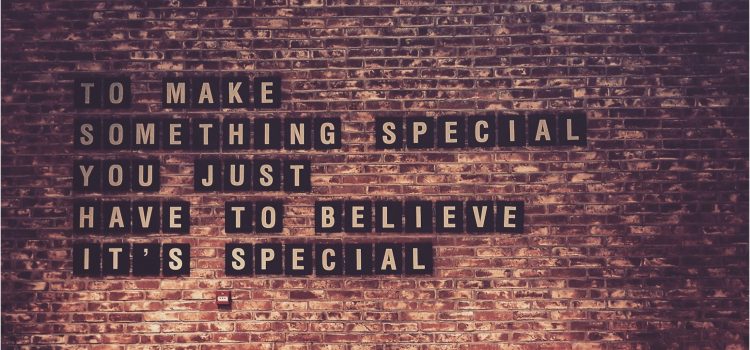

This article is an excerpt from the Shortform book guide to "The Confidence Gap" by Russ Harris. Shortform has the world's best summaries and analyses of books you should be reading.
Like this article? Sign up for a free trial here.
How can you start living by your values? Why do value-driven people achieve more success?
In You Are a Badass, Jen Sincero argues that many people worry excessively about what others will think of them, which prevents them from pursuing goals. Psychotherapist Russ Harris adds that such worries are a form of fear—you fear the judgment of others and therefore opt out of activities that would otherwise fulfill you.
Read on to learn how to start fearlessly living by your values, according to Harris’s advice.
Define Your Values and Related Goals
According to psychotherapist Russ Harris, to start living by your values, first note the values that matter most to you. If you’re not sure what your values are, think about how you want others to remember you in your eulogy—what positive traits will you want to represent to them?
Then, based on those values, come up with short-term, medium-term, and long-term goals. Make these goals specific and measurable. For instance, to act on your value of empathy, you might set the short-term goal of calling a friend who’s having a hard time this week. In the medium term, you might take a course on enhancing empathy. And in the long term, you might try reaching out to a family member you’ve always had a fraught relationship with, and use your empathy to rebuild a connection.
(Shortform note: Before determining short-term, medium-term, and long-term goals, productivity experts believe you must get clear on where you are now. In Goals!, Brian Tracy insists that you be completely upfront with yourself on where you currently stand in the pursuit of living by your values and goals. For instance, you might recognize that you’re far from achieving your long-term goal of rebuilding a relationship with a family member because you habitually disrespect them. Reflecting on your current status gives you insights into the obstacles you might face as you pursue your short-term, medium-term, and long-term goals, allowing you to overcome them.)
Once you’ve established your goals, pursue them, keeping in mind that attaining the goal doesn’t constitute success: Living by your values along the way constitutes success. For example, if the friend you set out to call this week doesn’t pick up, don’t feel that you’ve failed. Instead, you should feel good about your efforts to contact them because you acted in a spirit of empathy.
Harris cautions that you won’t be able to always act on your values in every situation, and that you shouldn’t expect this of yourself. What’s more, your values will shift over time as you age and your life changes. Therefore, don’t cling to values, and don’t beat yourself up when you don’t act on them. Simply acknowledge that you didn’t behave in accordance with your values, and recommit to them.
| The Importance of Values in the Workplace Harris stresses the importance of defining and living by your values in your day-to-day, while others, like Brené Brown, stress the importance of doing so as a leader in the workplace. Having clear values lets you make tough decisions with greater confidence. Brown, unlike Harris, recommends picking only two general values, which aren’t confined to different areas of your life. These values will be both personal and professional—there’s no difference. Brown adds that you must take care to pick values that are genuine to you and not values that others want you to have. Harris’s advice to consider how you want to be eulogized might help you do that. Then, instead of creating goals based on your values, she recommends pursuing your values by asking yourself three questions: 1. What behaviors are aligned with my values? 2. What behaviors are not aligned with my values? 3. When did I act in harmony with my values? Finally, perform the behaviors aligned with your values and avoid those that aren’t. Transforming values into behaviors rather than goals serves the added purpose of avoiding excessively goal-oriented thinking. If you only strive to perform behaviors, not reach goals, you won’t feel that there’s a specific aim to attain and therefore won’t become disappointed in yourself as readily. Since Harris stresses that you’ll never be able to act on your values in every situation and that they change over time, he’d likely approve of Brown’s behavior-oriented approach to values. |
Achieving Success by Living by Your Values
Harris invites you to define success as living according to your personal values as often as possible. He recommends this because living by your values is fully within your control, making it much easier to achieve success. What’s more, living according to your values is inherently rewarding and increases your overall satisfaction in life.
For instance, if you value empathy, you can choose to be empathetic at any time: at the doctor’s office, when talking to a sibling, and so on. Any act of empathy would be a success. Further, because you value empathy, acting on that value makes you happier and more fulfilled.
(Shortform note: Harris believes defining success as living by your values gives you full control over your success because you can choose to live out your values at any time. However, others might contest the idea that a values-driven life is one you have full control over. In Awaken the Giant Within, Tony Robbins argues that you don’t get to choose your values: They arise independently based on life events, your environment, the people you’re around, and so on. Not being able to choose your values in the first place implies a lesser degree of control over your life than Harris seems to believe in. Of course, not being able to choose your values in the first place doesn’t change the fact that you can still choose to act on them at any time.)
Importantly, Harris doesn’t feel you shouldn’t set goals at all. Instead, he thinks that you should set goals that stem from your values. This way, even if you don’t fully reach a goal, you derive satisfaction from the journey toward it because you’re living by your values. This also means you don’t only experience satisfaction in the brief moment of attaining a goal: You experience it all along the way toward that goal.
For instance, if you value empathy, you can live out that value in your stand-up show by paying careful attention to the audience and using material you think they’ll like specifically. Thus, even if you didn’t feel you reached your goal of having an amazing show, you still were empathetic to your audience, which gives you a sense of success and satisfaction.
(Shortform note: If you hesitate to set goals at all because you don’t want to slip into goal-oriented thinking, consider an alternative perspective on goals and values, also from Tony Robbins: He doesn’t ask you to define separate goals and values, but rather to define two types of values: “ends” and “means.” Ends are the big-picture values you want to achieve in life (like connection, contentment, and joy) while means are the smaller-picture values that help you achieve the ends (for instance, valuing friends as a means leads to greater connection as an end). Thus, by pursuing your “means” values, you’ll live out your “ends” values without having to worry about achieving specific goals.)

———End of Preview———
Like what you just read? Read the rest of the world's best book summary and analysis of Russ Harris's "The Confidence Gap" at Shortform.
Here's what you'll find in our full The Confidence Gap summary:
- How negative, limiting thoughts and fears prevent you from achieving your goals
- Why trying to ignore negative thoughts doesn't work
- The three steps to detach yourself from your negative thoughts






